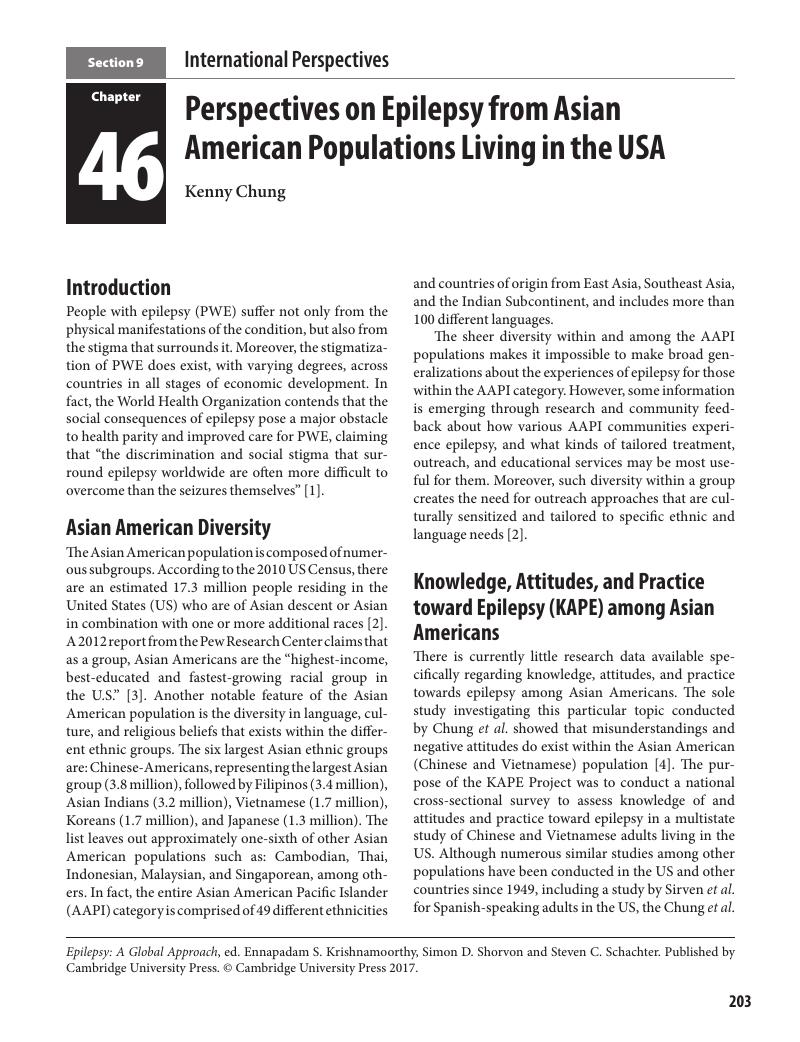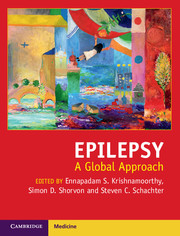Book contents
- EpilepsyA Global Approach
- Epilepsy
- Copyright page
- Dedication
- Contents
- Contributors
- Acknowledgments
- Section 1 Editorial Introduction
- Section 2 Infective Causes of Epilepsy
- Section 3 Consequences of Epilepsy
- Section 4 Comprehensive Epilepsy Care
- Section 5 The Medical Management of Epilepsy
- Section 6 The Surgical Management of Epilepsy
- Section 7 Non-Pharmacologic Management of Epilepsy
- Section 8 Epilepsy Issues with Global Health Impact
- Section 9 International Perspectives
- 45 Perspectives on Epilepsy in Tibet
- 46 Perspectives on Epilepsy from Asian American Populations Living in the USA
- 47 Perspectives on Epilepsy from Lebanon
- 48 Perspectives on Epilepsy from the Philippines
- 49 Integrated Thought
- Index
- References
46 - Perspectives on Epilepsy from Asian American Populations Living in the USA
from Section 9 - International Perspectives
Published online by Cambridge University Press: 13 April 2017
- EpilepsyA Global Approach
- Epilepsy
- Copyright page
- Dedication
- Contents
- Contributors
- Acknowledgments
- Section 1 Editorial Introduction
- Section 2 Infective Causes of Epilepsy
- Section 3 Consequences of Epilepsy
- Section 4 Comprehensive Epilepsy Care
- Section 5 The Medical Management of Epilepsy
- Section 6 The Surgical Management of Epilepsy
- Section 7 Non-Pharmacologic Management of Epilepsy
- Section 8 Epilepsy Issues with Global Health Impact
- Section 9 International Perspectives
- 45 Perspectives on Epilepsy in Tibet
- 46 Perspectives on Epilepsy from Asian American Populations Living in the USA
- 47 Perspectives on Epilepsy from Lebanon
- 48 Perspectives on Epilepsy from the Philippines
- 49 Integrated Thought
- Index
- References
Summary

- Type
- Chapter
- Information
- EpilepsyA Global Approach, pp. 203 - 206Publisher: Cambridge University PressPrint publication year: 2017



